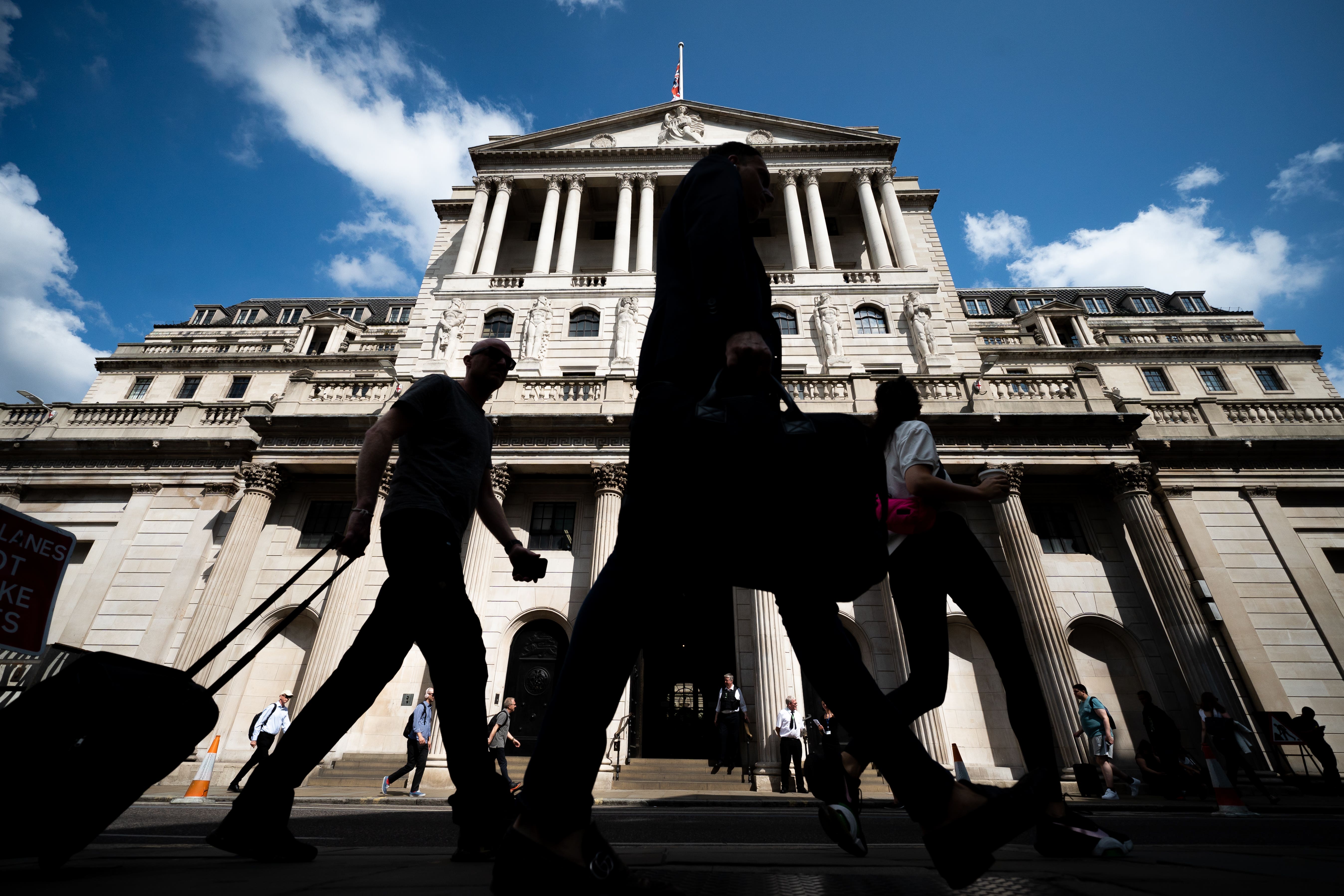Could Britain’s mortgage nightmare be at an end?
Inflation’s down and who could have predicted that? Not the Bank of England, obviously. So will they give home owners a break and follow with a cut in interest rates? Don’t bank on it, writes James Moore


In terms of a bona fide triple huzzah shot in the arm, you’d do well to find something much better than the latest UK inflation news in the world of economics.
We’d been primed for a grey September data release by chancellor Jeremy Hunt and the Bank of England’s governor Andrew Bailey. Inflation, they told us, would likely go up to 7.1 per cent. Just a “blip”, mind, with oil prices (they’re rising) taking the blame. But bear with us. A big fall will follow next time.
Except that the headline number for August rolled in at 6.7 per cent, a small but important fall from the previous month’s 6.8 per cent. The runaway train hasn’t quite hit the buffers but it continues to lose momentum. As for Hunt and Bailey? They will get an A for their expectations management. But the Bank’s forecasters will get another F.
Back to the good news and what happened to core inflation, which excludes volatile components such as food, fuel and tobacco that the Bank’s rate-setting Monetary Policy Committee (MPC) has little control over.
It has proved notably stubborn, a tumour that has refused to respond to treatment. That changed, with a steep fall in August to 6.2 per cent from 6.9 per cent. Another closely watched data point (by the MPC) is the rate of service price rises. That also showed a chunky, and very welcome, decline to 6.8 per cent from 7.4 per cent.
Before we look at how the MPC might respond, a word about food, the cost of which has hit families’ income in Britain particularly hard.
August’s figure of 13.6 per cent still looks about as appetising as a plate of rotten vegetables, but it is now moving in the right direction. Food price inflation hit a 45-year high of 19.2 per cent in March, but fell to 14.9 per cent in July. There is nonetheless still work to be done in ensuring children aren’t going to school hungry.
The flood of numbers from the Office for National Statistics (ONS) prompted an immediate fall in the value of sterling, as traders speculated on how the MPC might respond. Does this mean Britain’s long mortgage nightmare is over? Could struggling small businesses catch a break?
Well, maybe. Prior to the release, the financial markets had priced another quarter-point interest rate rise at roughly 80 per cent. It’s now a toss up at roughly 50-50.
Simon French, the chief economist at investment bank Panmure Gordon, made his view on what should happen very clear: “The latest UK inflation data continues a trend of softer price-setting behaviour in the UK economy since the start of Q3 [the July-September quarter].
“With a range of other relevant indicators also telling the Bank of England to pause for breath, we think anything else at the September MPC meeting would have the hallmarks of a policy mistake.”
Interest rate rises take time to have an impact. It’s like increasing the temperature when you take a shower. There’s a delay before the hot water arrives. The case made by French and others is that the hot water is now with us and that there is evidence to prove it. Turning it up any more will unnecessarily scald the economy.
The impact of those food prices, not to mention those of other essentials, had turned me into a rate hawk. But I think the case for a pause is becoming increasingly persuasive.
Enough of what the MPC should do. Let’s look at what it will do.
We can count on Swati Dhingra, the nine-member MPC’s leading dove, to make the case for taking the foot off the throttle. She might well argue for a rate cut. The indomitable Catherine Mann, another external MPC member, will sit on the other side of the fence.
But the decision will ultimately be made by the Bank’s five-strong internal team, who make up the majority of the committee and tend to vote as a bloc. They all look alike and, it sometimes seems, think alike. We really ought to pay more attention to the dangers of groupthink and whether it is entirely healthy in such an important body.
The MPC might point to the fact that inflation is still high by comparison to the other members of the G7 group of big economies and will be the highest over the course of 2023. This is disproportionately hurting low-income Britons in particular. Inflation is hard to put back in its box once set free, as recent events have proved.
This is why I fear the MPC majority will opt for one more quarter-point rise to drive the point home. For the sake of the UK economy, not to mention its hard-pressed borrowers, I hope I’m wrong.






Join our commenting forum
Join thought-provoking conversations, follow other Independent readers and see their replies
Comments